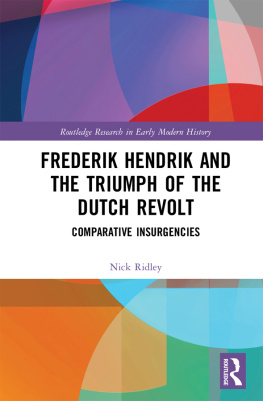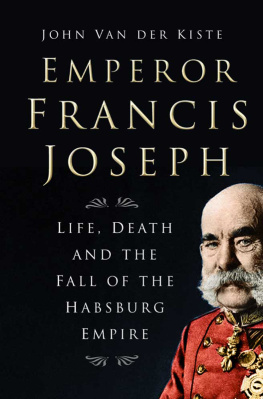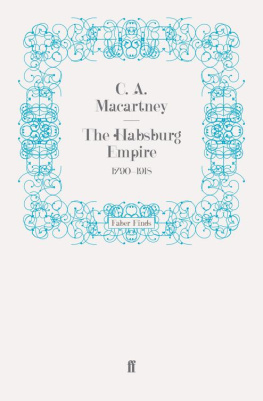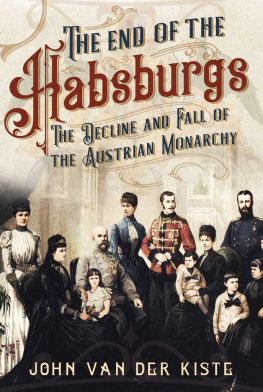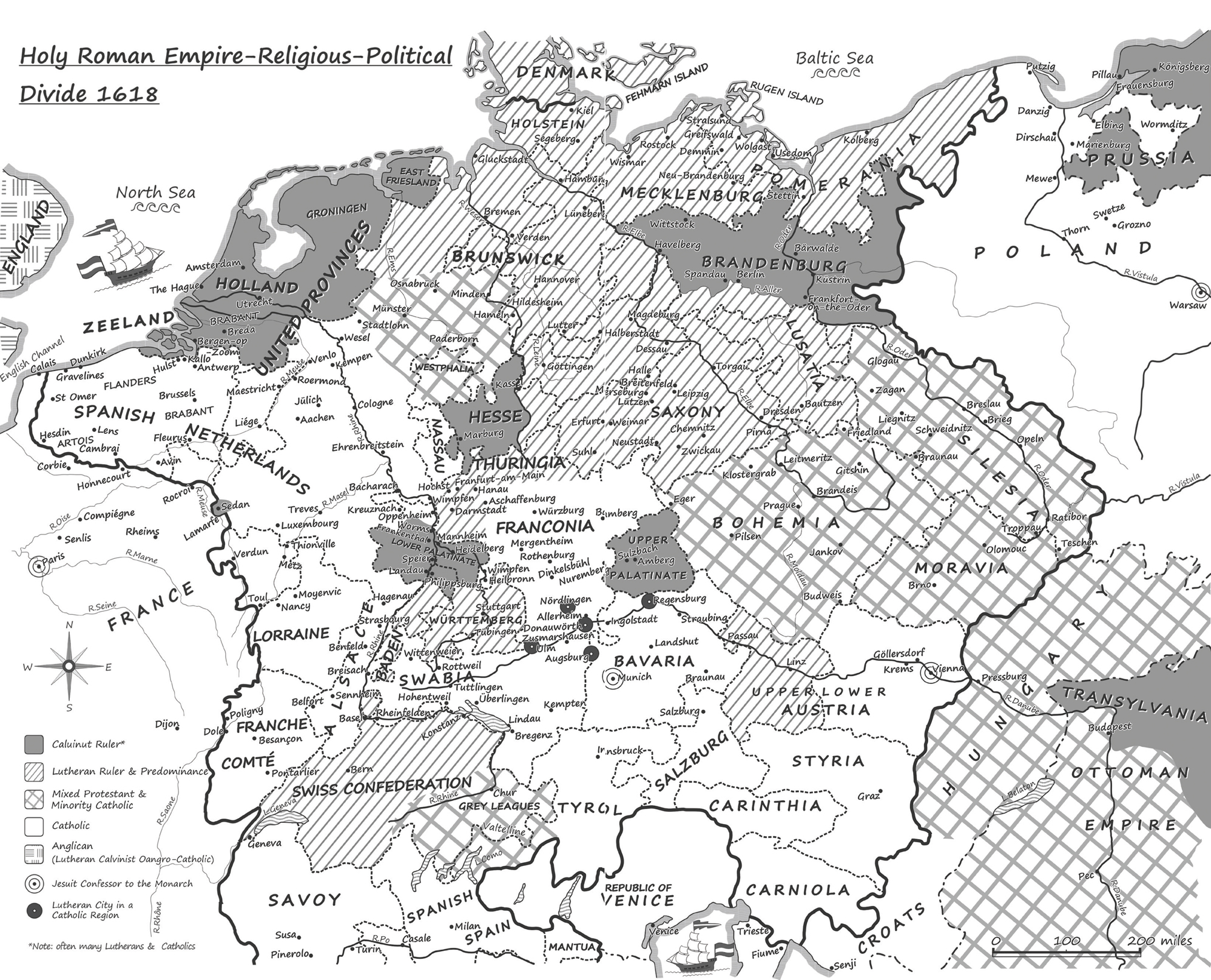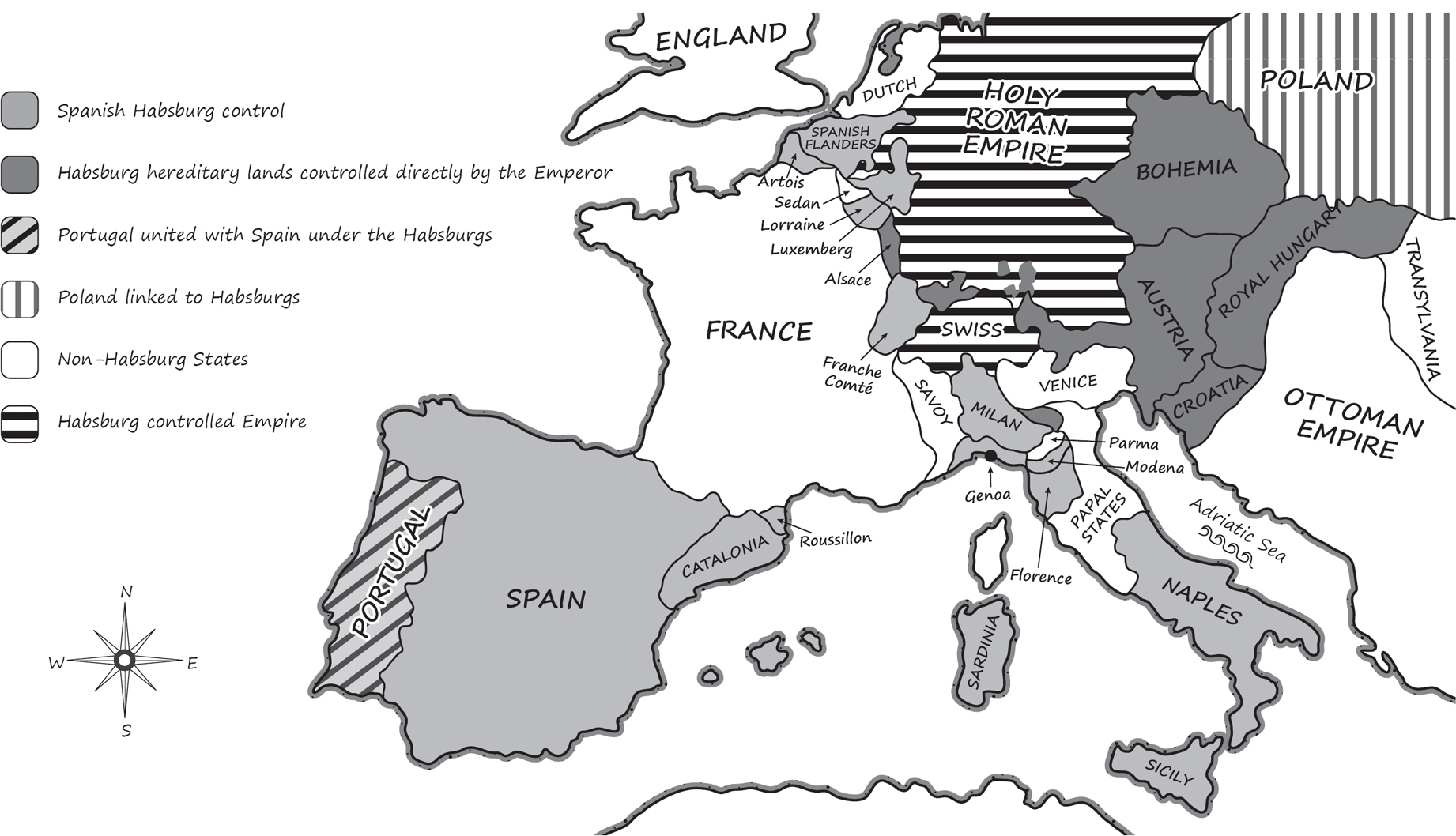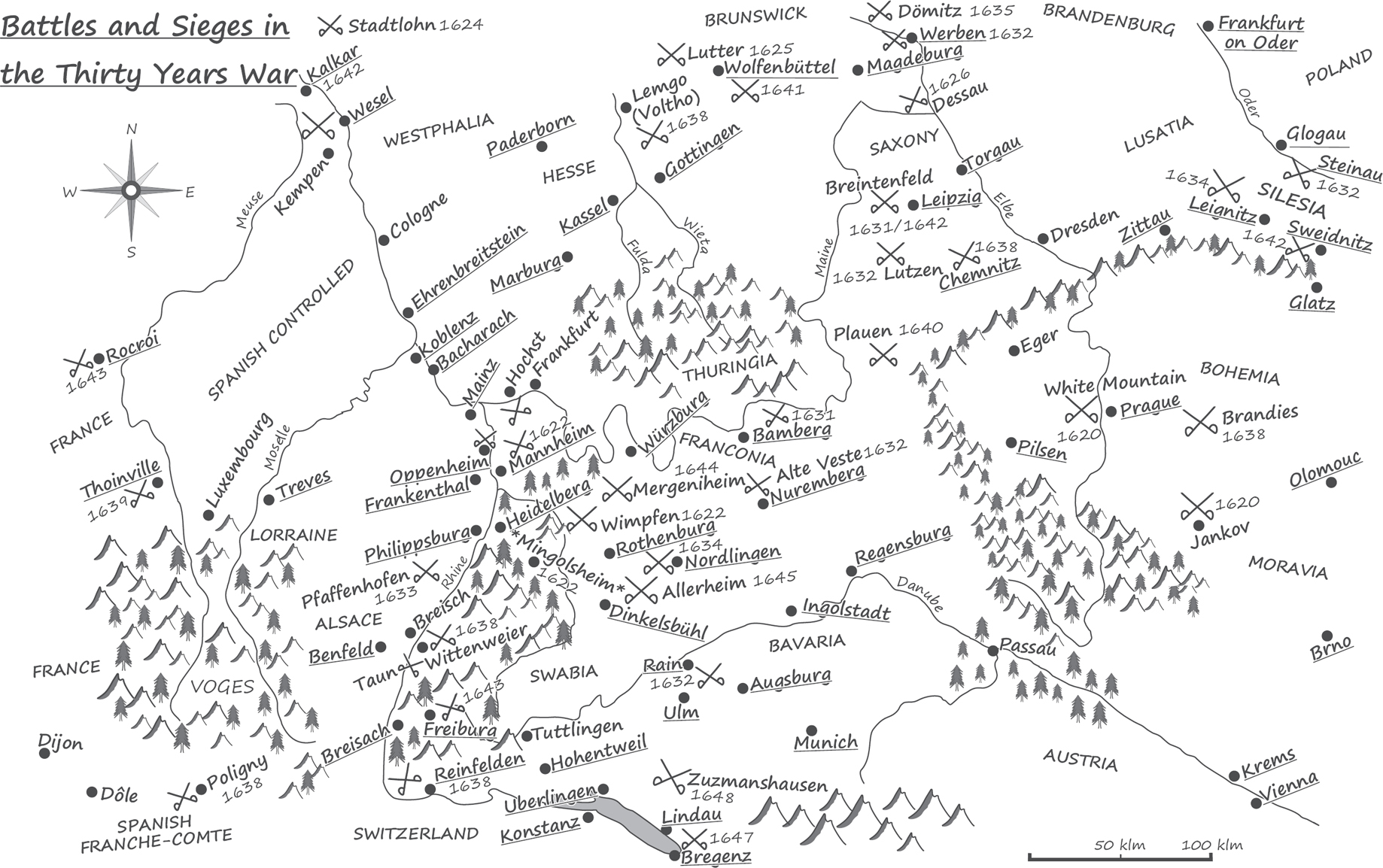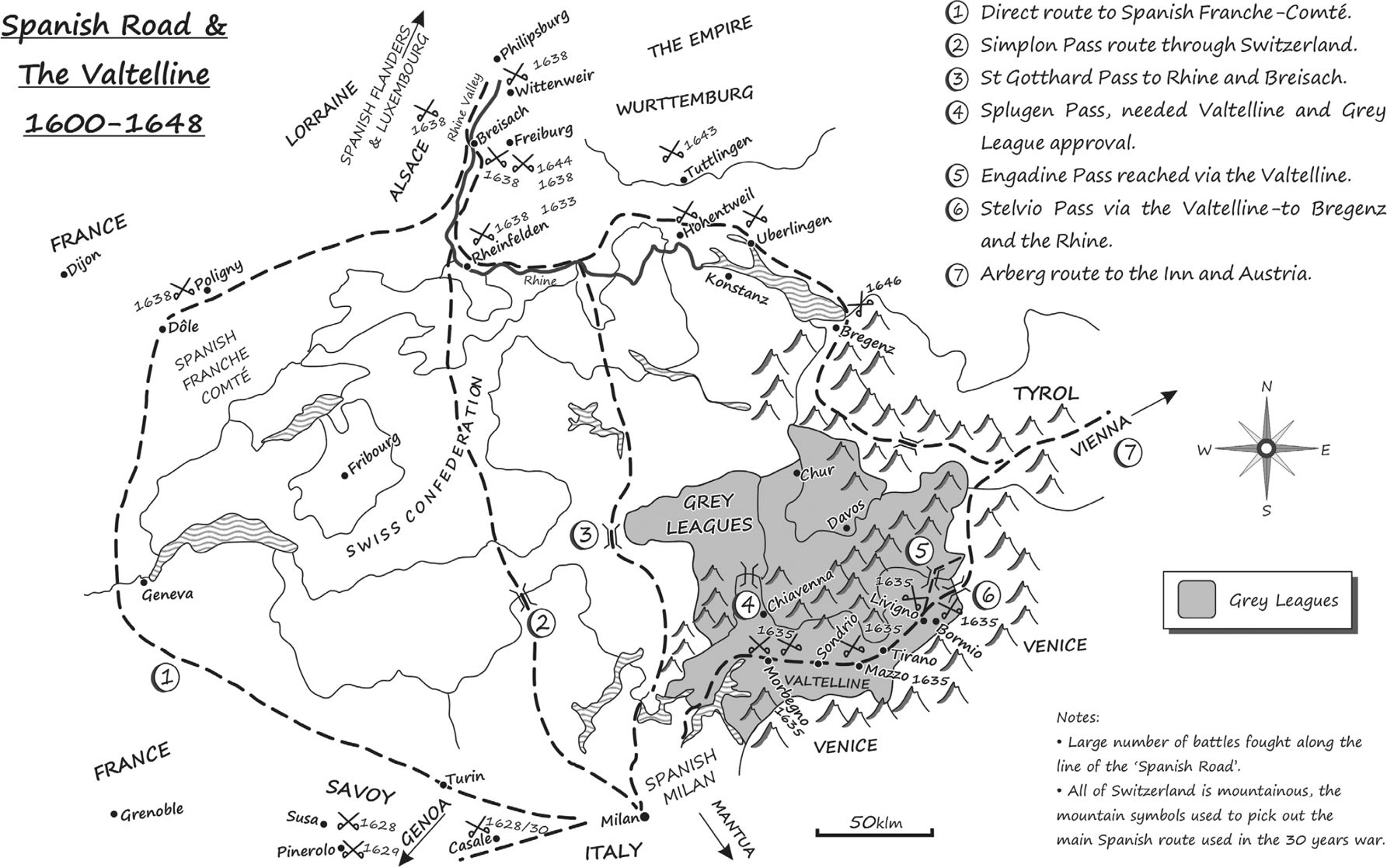Pagebreaks of the print version

The Thirty Years War,
16181648
The Thirty Years War,
16181648
The First Global War and the
end of Habsburg Supremacy
John Pike
First published in Great Britain in 2022 by
Pen & Sword Military
An imprint of
Pen & Sword Books Ltd
Yorkshire Philadelphia
Copyright John Pike 2022
ISBN 978 1 52677 575 7
Epub ISBN 9781526775764
Mobi ISBN 9781526775764
The right of John Pike to be identified as Author of this work has been asserted by him in accordance with the Copyright, Designs and Patents Act 1988.
A CIP catalogue record for this book is available from the British Library.
All rights reserved. No part of this book may be reproduced or transmitted in any form or by any means, electronic or mechanical including photocopying, recording or by any information storage and retrieval system, without permission from the Publisher in writing.
Maps by Amy Wilkinson ()
Pen & Sword Books Limited incorporates the imprints of Atlas, Archaeology, Aviation, Discovery, Family History, Fiction, History, Maritime, Military, Military Classics, Politics, Select, Transport, True Crime, Air World, Frontline Publishing, Leo Cooper, Remember When, Seaforth Publishing, The Praetorian Press, Wharncliffe Local History, Wharncliffe Transport, Wharncliffe True Crime and White Owl.
For a complete list of Pen & Sword titles please contact
PEN & SWORD BOOKS LIMITED
47 Church Street, Barnsley, South Yorkshire, S70 2AS, England
E-mail:
Website: www.pen-and-sword.co.uk
Or
PEN AND SWORD BOOKS
1950 Lawrence Rd, Havertown, PA 19083, USA
E-mail:
Website: www.penandswordbooks.com
Introduction
Habsburg Imperium and the Challenges
Madrid and Vienna, two coup detat
A t the Spanish court, Count Olivares was gaining influence behind the scenes as the confidant of Philip IIIs son (to become Philip IV). Olivares with his uncle Zuniga organised a progressive coup detat to replace chief Councillor Duke of Lerma; contriving firstly to insinuate his uncle Zuniga onto the Royal Council they then instigated a new assertive foreign policy on behalf of Philip III and his Jesuit confessor. Lerma received his coup de grace in October 1618, but power had already shifted from the moment that ambassador Zuniga at Vienna was recalled to join the Royal council in July 1617. Through 1617-18 power slipped away from Lerma who was forced into a more pro-active policy. With Philip IIIs support a reluctant Lerma was forced to offer money to the Emperor in the form of a 200,000 ducat subsidy in July 1618, to help Ferdinand in the Bohemian crisis, since if the Empire should be lost to the House of Austria through the lack of it (money), advised Lerma, nothing in Italy will be safe. [Lerma to Salazar 26 Aug 1618].
He was replaced by his own son Ucueda who had backed the reformist faction. Completion of the coup had to wait until Philip IIIs death in 1621, at which point Philip IVs favourite, Olivares, would boast now everything is mine.
New ambassador Onate in Vienna actively aided the launching of a coup against Emperor Matthias by grooming Counter-Reformation hawk Ferdinand of Styria as the future emperor. The Habsburg alliance was renewed and set on a stable course by the clearing of potential disputes. Spain dropped its dynastic claims which were compensated by transfer of Franche-Comte to Spain, the territory that covered the region between Switzerland and Burgundy. It heralded a major policy shift to an assertive foreign policy with the aim of winning the war against the Dutch Republic when the truce ended in 1621. Motivation was expressed by Zuniga: In my view if a monarchy has lost its reputation, even if it has lost no territory, it is a sky without light, a sun without rays, a body without soul. Recovery would involve increased military spending and a second coup detat in Vienna.
The Habsburg dynastic alliance between Vienna and Madrid was therefore committed to a multi-faceted revanchist policy across Europe in parallel with the Counter-Reformation; an adventurist policy which would disturb the balance of power in Germany and in Europe, and test the strength, stability and supremacy of the Habsburg alliance.
Habsburg Europe Early 17th Century
Battles and Sieges in the Thirty Years War
The Defenestration of Prague 23 May 1618
On the morning of 23 May 1618, rebellious nobles, their retainers, and a mob of citizens surged across the Charles Bridge then swept up the steep cobblestone path to the Hradany Castle perched high in Pragues Old Quarter. Pouring through the main gate conveniently left open, they stormed into the building, forcing an entry into the council chamber, a small wood panelled room with a large German-style tiled fireplace. There they confronted the four terrified Imperial councillors, including Slawata and Martinitz. There followed angry questioning as to the origins and authorship of the orders in respect of the Braunau incidents, where Protestant churches and congregations had been suppressed. According to Count Martinitz the Protestant delegation replied to the Imperial letter which had already been addressed to them; the reply went like this: his Majesty declared all our lives forfeit, thereby greatly frightening all three protestant estates. it is clear that such a letter came through the advice of some of our religious enemies .
Pistols were produced from under a cloak by Litwin von Rican: after further heated declarations and an assault by Thurn on Martinitz who was thrown to the floor, Rican, Kinsky, and Smirizcky declared: It is clear that the Imperial letter goes against our letter of majesty. You are enemies of us and our religion, have desired to deprive us of our letter of Majesty, (1609 guarantee of rights) have horribly plagued your protestant subjects and have tried to force them to adopt your religion against their wills or have them expelled for this reason. (Martinitz).
Most notably the Government had pulled down, razed to the ground, and levelled the newly built church at Klostergrab. This and other breaches had legitimised the revolt. In the Hussite tradition, the angry mob of noblemen eventually rushed at the two councillors deemed the guiltiest intending to defenestrate them. Martinitz recounted that the rebels pinned him down then took him to the open window whilst they shouted, Now we will take our just revenge on our religious enemies; he feared that his end was nigh. When Martinitz realised the nature of his impending death he claimed in his embellished account to have called out loudly, Since this concerns the will of God, the Catholic religion, and the will of the Emperor we will gladly submit He was then thrown head first out of the window.


